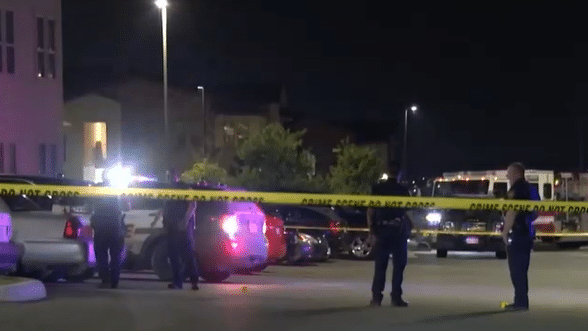NASHVILLE, TENNESSEE — There’s tense debate about campus carry coming to Tennessee even as its Senate passes a measure which would allow it. It’s a hard conversation that needs to be carried out between law enforcement tasked with clearing and securing an area — arguably a function requiring militaristic coordination — and the individual liberty of a person to defend his or her own life with a concealed carry firearm.
There’s no clear cut answer to these questions posed by the Chief of Police of the University of Memphis in response to this recent bill.
“Here at the U of M, we have a multi-hazard emergency response plan; we conduct regular training activities for emergency events and have emergency notification systems for students and staff,” Harber said in an email to The Daily Helmsman. “Additionally, we have a well-trained police department and a mutual assistance agreement with MPD (Memphis Police Department). [If the bill passes,] every person and weapon encountered will have to be secured on the way to responding toward a threat. This deviates from the national model that urges police officers to respond as quickly as possible in situations where literally every second is critical.”
The Tennessee state president for Students for Concealed Carry offers an objection to the police director’s opinion.
“His intuitions are understandable and not invalid,” Dedmon said. “However, in any serious domain of inquiry, people make decisions based upon the observable facts rather than their gut feelings. The facts are on the side of campus carry advocates. The bill in no way changes who has the lawful right to carry, it only removes the geographical barriers that are currently placed on permit-holding faculty. Several states already allow this, and it has been a non-issue. I expect that it will be the same case in Tennessee.”
At the core of this issue is a fundamental illustration of a police force coping with ever increasingly and persistent problems with sporadic and unpredictable violence on college campuses.
Being forced into that “hot seat” to be the first ones into an unknown, non-defined violent scenario revolving around one or multiple assailants surrounded by hundreds if not thousands of innocent people is understandably nerve-racking. You want to get in, do your job, save as many people as you can, neutralize the threat, secure the area, and go home.
Now let’s add just one more variable: it’s unknown which student or faculty member is armed.
But here’s why this is ultimately not an issue: you should already be advancing upon your objective with the thought in your mind that every potential person encountered could be a threat or non-hostile and judge accordingly to observation. This is a stressful position to be placed in but that’s also, unfortunately, the job you signed on for.
The potential for a good guy with a gun to protect his or herself and possibly his classmates is there and — more importantly — it’s a constitutionally protected right which we must acknowledge and allow to exist.


![[WATCH] Pistol Carrier Stalked By Mountain Lion, Catches It All On Video](https://imagedelivery.net/sbm_lYeJbALkepJgtmRD5w/concealednation.org/2023/01/Cougar-Attack.jpg/w=728,h=381)








![[VIDEO] Karma: Armed Robber Shoots Himself In The Leg, Later Dies At The Hospital](https://imagedelivery.net/sbm_lYeJbALkepJgtmRD5w/concealednation.org/2019/07/ScreenHunter_2459-Jul.-05-11.33.jpg/w=728,h=381)


